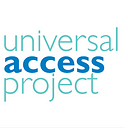Q&A: Activists in Uganda See Unexpected Impacts from the Global Gag Rule

By Seema Jalan
One of the Trump Administration’s first acts in office was to reinstate and dramatically expand the Global Gag Rule, a harmful policy that prevents foreign non-governmental organizations from receiving U.S. global health funding if they provide information about, referrals to, or services for legal abortion, or advocate for legalized abortion, even with their own, non-U.S. funds. Prior versions of the policy impacted about $600 million in family planning funding from the U.S. The current Global Gag Rule impacts all global health funding — about $9 billion — and two years on, the harmful effects are bubbling to the surface around the globe.
In Uganda, one of the largest recipients of U.S. global health assistance, Marie Stopes Uganda delivers contraception to more than 1.2 million women and couples; but since losing U.S. funding due to the Global Gag Rule, its outreach services for the country’s most vulnerable populations are suffering. Marie Stopes Uganda director Dr. Carole Sekimpi shares some of the impacts — intended and unintended — of this devastating policy:
Universal Access Project: What impact has the Global Gag Rule had in Uganda so far?
Dr. Carole Sekimpi: The Global Gag Rule has both direct and indirect impacts in Uganda. The direct impact for organizations that are not complying — like Marie Stopes Uganda — is loss of funding, and that happened almost immediately, within six months of reinstating the policy. But the indirect impacts are actually more serious. Because we work through partnerships, and because we have lost some of these partnerships [between those organizations that are complying and those that aren’t], we were having polarized conversations about policies and tough discussions about access to family planning and reproductive health services. We see more stigmatization around these services. So for Uganda in particular we are seeing a general regression on the SRHR [sexual and reproductive health and rights] agenda even after we had made so much progress over the past years. The U.S. government is the biggest donor for global health, including SRHR, and it sets the tone of not prioritizing SRHR and everyone tends to follow suit.
UAP: How does the Global Gag Rule impact vulnerable populations?
CS: For us as a service delivery organization, we reach the most vulnerable people through outreach channels. [Before the Global Gag Rule,] we had 35 outreach teams, and when the policy hit us we had to scale back by five teams. What that means is we’re unable to go to some places as frequently as we would like to go, and other places not at all; and that means that there is limited access for those that need [our services] most, especially the poor people.
UAP: What are challenges of complying with the Global Gag Rule?
CS: I think that the biggest challenge of complying with the Global Gag Rule, besides the obvious loss of funding, is the chilling effect. In the context of Africa and of Uganda in particular, this is just our culture — we don’t talk about sex, it’s a “hush hush” matter. I would like to say that we deal with a difficult subject and the chilling effect of the Global Gag Rule doesn’t make it any easier. And yet we recognize that although it’s a difficult subject [to talk about], someone has to do it, someone has to deal with these issues. Sex should be healthy. So [the Global Gag Rule] just makes the conversation more difficult. It stigmatizes it at all levels. The flip side is you’re building resilient people…I’m optimistic that there are many like-minded people who out of all of this will become strong advocates for women and their sexual health.
UAP: Have you seen any unexpected or unintended impacts of the Global Gag Rule?
CS: The sudden change [to the reinstated and expanded Global Gag Rule] creates a vacuum and creates a conversation. So what we have seen is more vocalization around abortion. We used to call it the “a-word” at Marie Stopes Uganda because we realized people were just afraid to say the word but now I hear more “abortion” than “a-word.” And I think that’s great because it’s a step toward normalization. Discussion of abortion is more on the table. And we’re becoming more resilient, less donor dependent. And I think that’s beautiful because it means we can be here for the long term.
Our message to policymakers is that they need to do their job, and they need to keep their personal beliefs and backgrounds out of it. They need to look at the data and do what [they] need to do to move our world forward and save the lives of women. When you sit in an office, you represent people — it’s not about you. So let’s get the job done.
Learn more about the Universal Access Project and get involved at www.universalaccessproject.org.
